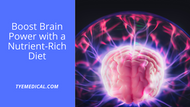Boost Brain Power with These Vitamins and Nutrients
Written by TYE Medical on Dec 13th 2022
As more research comes out concerning nutrition and dietary needs, it’s more common to turn to food choices as the first line of defense for improved health. While you decide what works for you, i.e. organic, non-GMO, or even veganism, you might also want to consider eating for brain health.
Your diet is a major factor in keeping your brain healthy as you age. Getting the proper nutrients is key, and eating a variety of nutrient-rich foods is the best way to achieve this. The right diet can slow cognitive decline and even reduce dementia risk.
Since supplements for brain health aren’t the most effective option, you’re far better off getting those brain-boosting nutrients from whole foods. A balanced diet full of variety creates a combination of vitamins and nutrients that are more easily absorbed.
Here’s how to know which vitamins to target for brain health and which foods to find them in.
Vitamin E
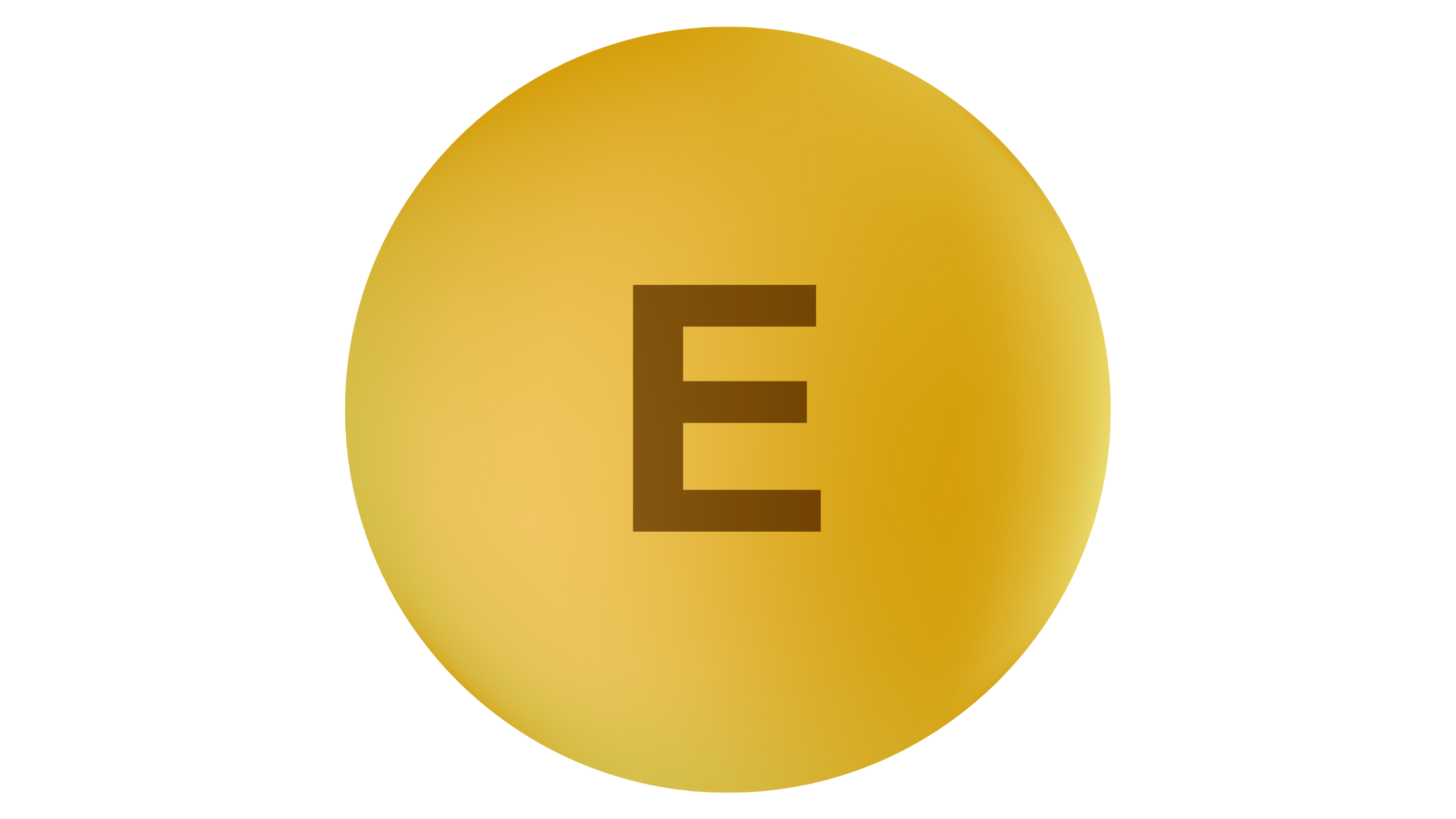
Vitamin E is an antioxidant that protects your body from free radical damage (oxidative stress). Free radicals are unstoppable molecules that plague your body. Vitamin E even protects the brains of people with Alzheimer’s disease. Your brain is highly vulnerable to oxidative stress, which only worsens with age. Scientists consider it a major contributor to cognitive decline.
And if that weren’t enough, vitamin E is also an anti-inflammatory, ensuring healthy DNA and brain cell membranes.
Foods with vitamin E: Dark leafy greens, red bell pepper, avocado, asparagus, pumpkin, mango, nuts, seeds.
Omega-3 Fatty Acids
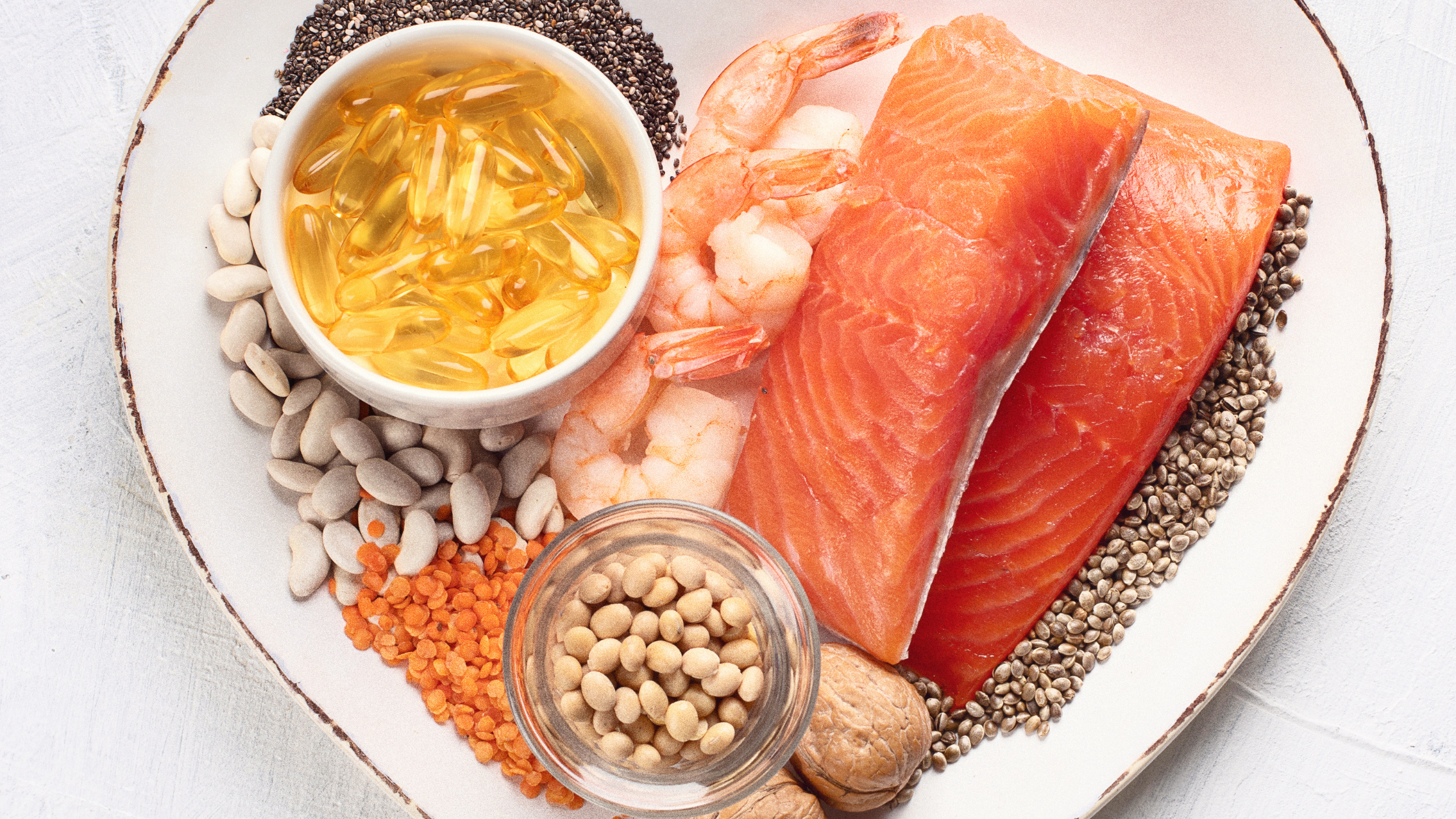
Omega-3 fatty acids are why fatty fish like tuna and salmon are considered so healthy. Omega-3s are a type of unsaturated fat with anti-inflammatory properties that help protect your brain and play an important role in creating brain cell membranes.
If that isn’t enough, omega-3s promote lower levels of a protein related to Alzheimer’s disease. And some research suggests that high doses of omega-3s can protect the brain from prolonged damage from concussions and traumatic brain injuries.
Foods with omega-3 fatty acids: fatty fish, nuts, seeds, fortified eggs and yogurt.
B Vitamins
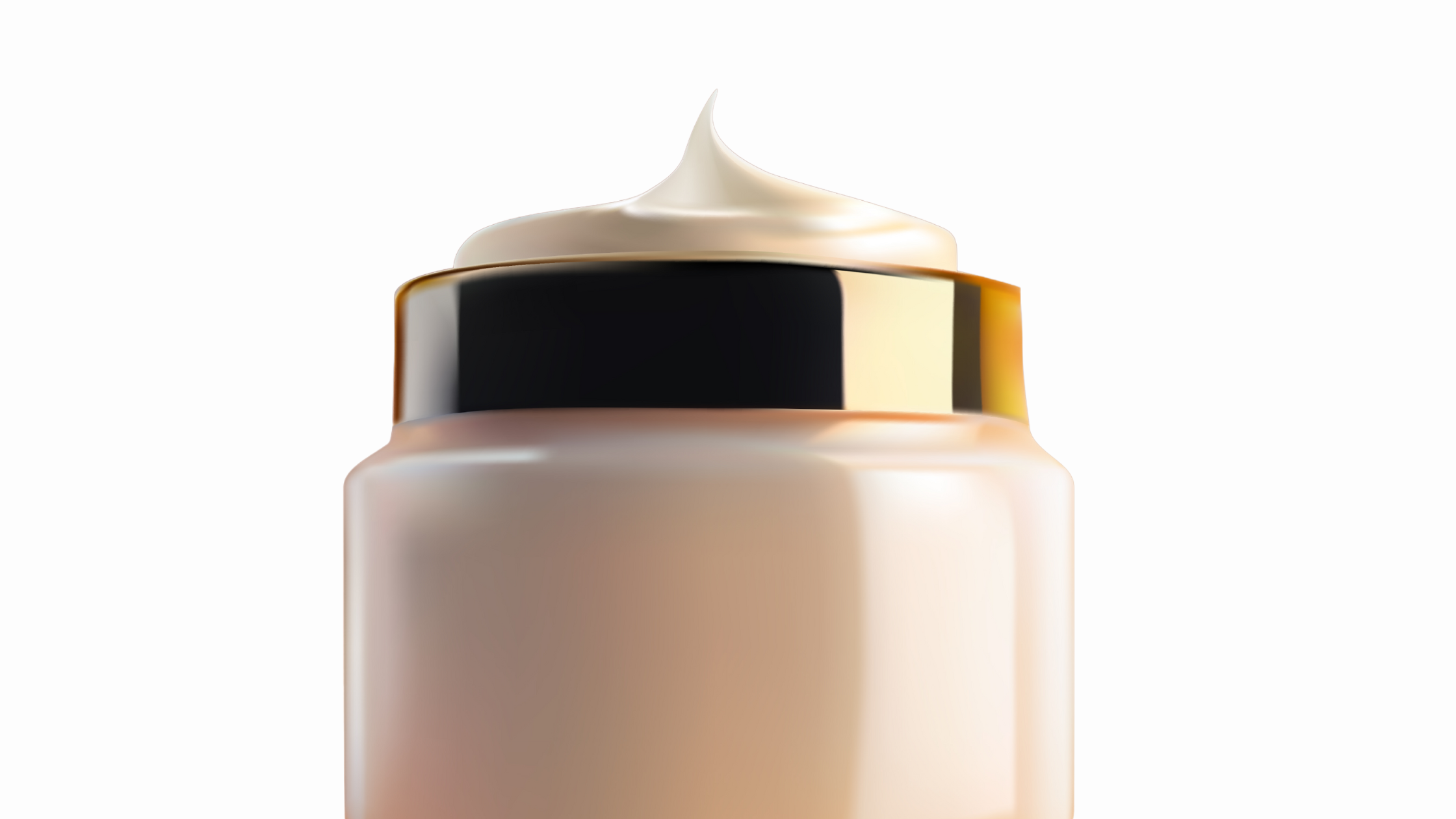
The brain health vitamin all-stars include vitamins B6, B12, and B9 (also known as folate). Your brain requires these for normal function. Deficiency increases your risk of memory loss and other types of cognitive decline.
B vitamins are critical to brain function because they enhance neurotransmitter production. These are brain chemicals that send messages between your brain and body.
For many vitamins and nutrients, supplements aren’t the best option. But when it comes to B12, it’s a different story. Many people become deficient in B12 as they age. A B12 supplement can ensure you’re maintaining adequate levels, and there are many easy-to-absorb forms, including liquid drops.
Foods with B12: meat, fish, and dairy products.
Vegans and vegetarians run a more serious risk of B12 deficiency. Nutritional yeast is a great way to incorporate B12 into your diet. But you may also want to talk with your doctor about a B12 supplement.
Vitamin C

Your brain contains far greater concentrations of vitamin C than what is found in any other part of your body. Why? Because it’s needed to fuel all your thoughts, feelings, and movements.
This is another inflammation-fighting nutrient that goes a long way toward supporting brain health. A study by Rush University found that eating strawberries (rich in vitamin C) just once per week was enough to decrease the risk of Alzheimer’s.
Foods with vitamin C: berries, citrus, broccoli, cauliflower, Brussels sprouts, tomatoes, kiwi, red and green bell peppers.
Vitamin D

It’s not uncommon to be lacking in vitamin D. Even though sun exposure is the most direct way to meet your quota, most people don’t get enough time outside. And still, others don’t absorb the vitamin well. If you can’t get your vitamin D from the sun, doctors often recommend taking a supplement.
And if you’re interested in brain health, then be sure to follow doctor’s orders. Vitamin D is known to protect against cognitive decline, stave off Alzheimer’s, and support overall mental health. It also stimulates the most important antioxidant in the brain.
Taking Supplements for Brain Health

The body of research on taking supplements for brain health is inconclusive. Research is mixed, and most experts recommend spending your money on healthy foods rather than on pricey supplements.
But as with most things, there are exceptions to this rule. If you dislike a larger food group (think dairy, seafood, etc.) or are allergic to such a group, then a supplement would be the next-best option. A supplement is also a good idea if blood tests reveal you are deficient in a nutrient.
How to Purchase Supplements When Necessary
If you decide to purchase a supplement specifically for brain health, it’s best to work with a doctor or nutrition specialist who is experienced and up-to-date on research.
Why? A professional can help you navigate the mixed research and the deceptive marketing that can easily confuse non-medical professionals. And expert guidance is also crucial since the FDA (Food and Drug Administration) doesn’t regulate supplements.
You’ll know if you’ve found a high-quality supplement if it bears a seal of approval from:
- Consumer Lab
- NSF International
- US pharmacopeia Convention (USP)
A seal from one of these third-party certification programs means it has been tested to determine purity, quality, and potency. The seal also indicates the product contains the ingredients it calms.
Brain Supplement Categories At A Glance
- Improve blood flow: Ginkgo Biloba
- Supports building blocks of the brain: omega-3 fatty acids
- Build neurotransmitters: L-theanine
- Reduce cognitive decline: B vitamins, vitamins C, D, A, E, K
Common Supplements for Brain Health
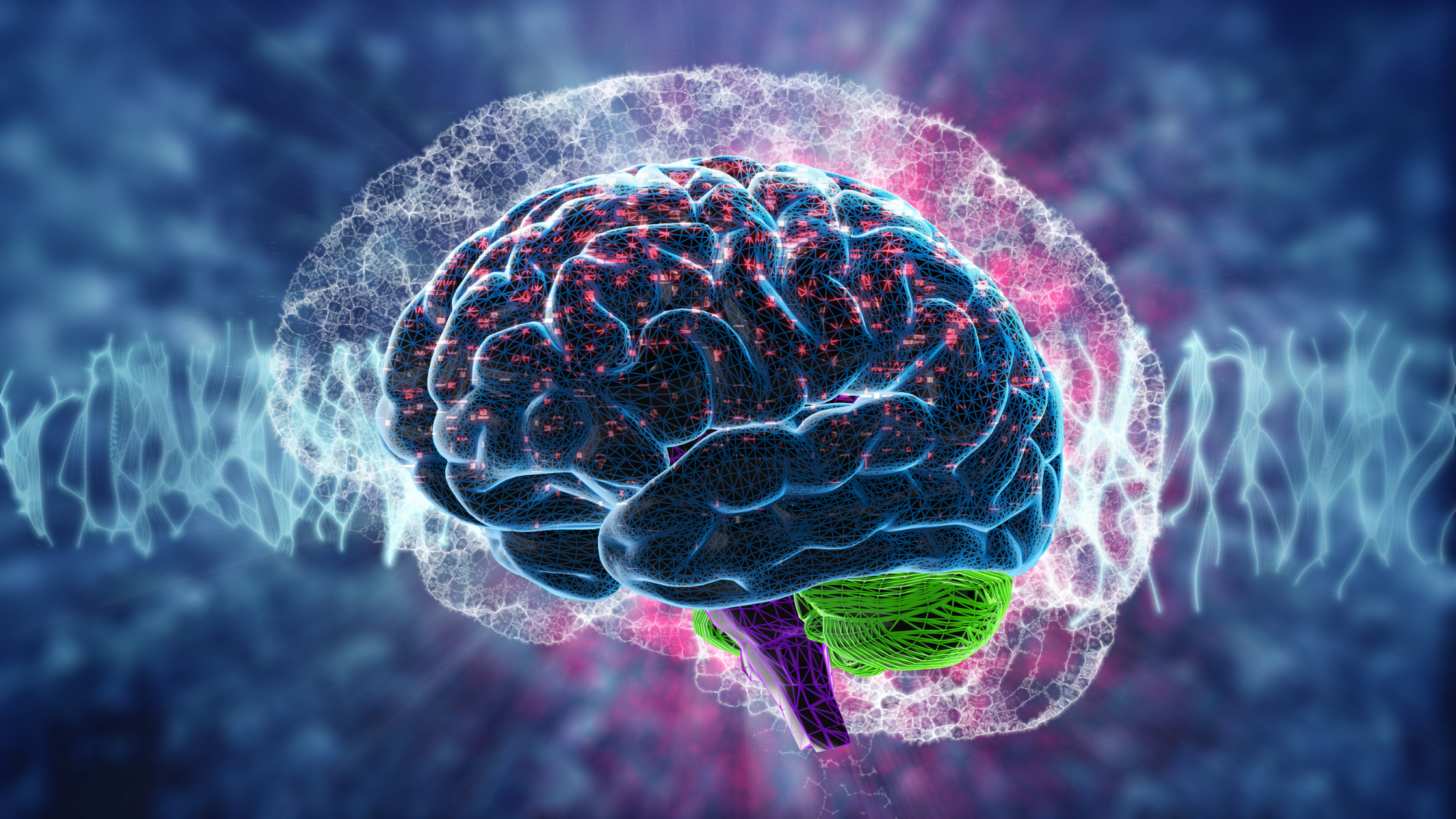
L-Carnitine
Even though the research is not conclusive, this mitochondrial nutrient is believed to improve neurotransmitter function and cognition. It may also improve depression symptoms, but is found most effective for depression in seniors and at higher doses.
L-Theanine
This is an amino acid that has a calming effect on neurotransmitters, balancing your mood and stress. Why is this important? Stress has a negative impact on brain function, which means the de-stressing effects of L-theanine may help improve your cognition. Taking this supplement along with mindfulness techniques may improve results.
Mushrooms
Certain types of mushrooms like Lion’s Maine, Chaga, and Reishi are believed to protect your brain from neurodegeneration and inflammation. They may also improve your mood, focus, memory, cognition, and attention. Who doesn't need that?
Ginkgo Biloba
Not only does research back this supplement as a memory enhancer, but it’s also known to support healthy blood flow to your brain. Some studies have shown that it improves memory problems associated with dementia or Alzheimer’s. It may even help prevent progression of dementia symptoms. But it hasn’t been found to prevent dementia or Alzheimer’s.
Bacopa
This supplement has its roots in ancient Indian medicine. Some doctors and nutritionists recommend it as a way to increase brain chemicals that stimulate learning, thinking, and memory. It’s often used to combat Alzheimer’s, as it may protect brain cells from chemicals involved in the disease.
Other Nutritional Tips for Brain Health

Limit Saturated Fat Consumption
Foods that are high in saturated fat like butter, dairy products, and red meat have been linked with degenerative diseases, including Alzheimer’s. If you’re eating for brain health, consider reducing your intake of these foods.
Try a Mediterranean-Style Diet
This type of diet includes lots of fish, green leafy vegetables, whole grains, olives, and nuts. And many of these foods are rich in vitamins and nutrients that improve brain function and fight cognitive decline. It may even reduce your risk of developing Alzheimer’s.
Add Spices
Herbs and spices like turmeric, cinnamon, ginger are loaded with inflammation-fighting antioxidants. Decreasing inflammation is key for fighting cognitive decline. Try adding liberal amounts of these potent spices to your favorite foods.
Enjoy Coffee or Tea
This tip is easy to comply with if you are a coffee drinker or tea lover. Coffee is known to improve memory and decrease dementia risk primarily due to its caffeine content, especially if you drink up to three cups per day. Black and green tea also make your brain happy as they are loaded with antioxidants that protect from free-radical damage and inflammation. Be sure to let your steep a while to ensure it’s strong enough to give you maximum benefits.
Avoid Sugars
Sugar, processed, and refined foods are low-grade brain fuel that can damage your brain, impair function, and even promote inflammation. Once sugars and other inferior foods make it to your brain, they tend to stick around. That’s why a diet high in refined sugars is so detrimental to brain health. Such high-sugar diets also increase your risk of depression.
What to Remember
Filling your plate with nutritious whole foods goes a long way toward promoting brain health and function. Sometimes, it might be necessary to use a supplement, but the right diet is often most effective and a better investment.
While you make nutritious dietary choices, be sure to avoid pitfalls like too many high-sugar or refined foods. But you can add more spices, coffee, and tea to round out your brain-boosting eating plan.

